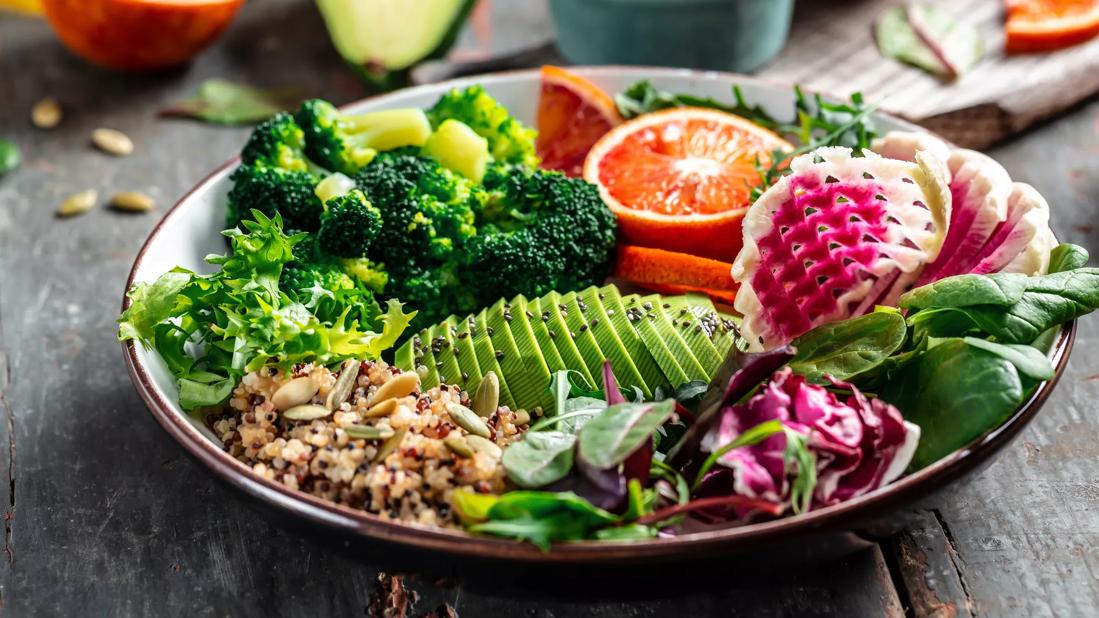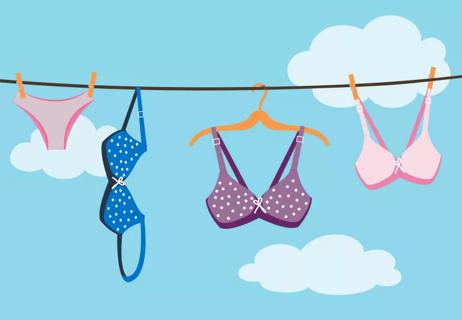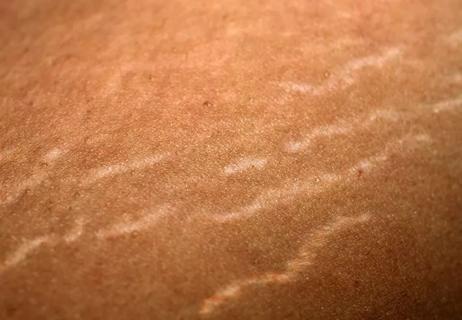Taking precautions like eating healthy, stopping smoking and getting regular screenings can help protect against breast cancer

Statistically speaking, there’s a reason breast cancer causes so much worry.
Advertisement
Cleveland Clinic is a non-profit academic medical center. Advertising on our site helps support our mission. We do not endorse non-Cleveland Clinic products or services. Policy
On average, 1 out of 8 women will be diagnosed with breast cancer at some point during their lifetime. Incident rates are trending upward, too.
So, that leads to an obvious question: Are there ways to boost your breast health and improve your odds? The answer to that is YES. Let’s take a closer look at how with oncologists Erin Roesch, MD, and Tiffany Onger, MD.
Breast cancer can reveal itself in many ways. You may notice a change in the shape of a breast, for instance. You might suddenly feel a small mass or lump. Maybe your skin looks slightly different in color or texture.
The similarity between those examples? They all represent a departure from the breasts you’ve known. One study found that 43% of breast cancer diagnoses began with individual detection.
“Don’t ignore changes,” emphasizes Dr. Onger. “They deserve your attention and a visit to your healthcare provider.”
There’s no one specific cause of breast cancer or a 100% way to prevent the disease. Age and genetics, for instance, are beyond our control. “We call those non-modifiable risk factors, a fancy way of saying you’re dealt the hand you’re dealt,” says Dr. Onger.
But that doesn’t mean you don’t have any control. Here are six things you can do to reduce your risk of getting breast cancer.
Advertisement
Extra weight means extra risk when it comes to breast cancer.
Studies show that having obesity significantly increases breast cancer risk for people after menopause. One group of researchers found that a 20-pound weight gain during menopause raised breast cancer risk by 18%.
In addition, having obesity also increases the chances of breast cancer spreading to other areas of your body with worse outcomes, notes Dr. Roesch.
Excess weight also makes it more likely that the disease will return after treatment.
Why does this happen? Some theories revolve around how fat cells interact with hormones (such as estrogen) to fuel cancer growth. Inflammation and elevated blood sugar also may play a role.
Whatever the reason, studies show a clear connection between having obesity, having overweight and breast cancer risk. (Obesity is generally associated with a body mass index, or BMI, measurement of 30 or higher. A BMI between 25 and 29.9 is considered having overweight.)
The good news? This negative effect is reversible. Trimming down and dropping body fat (particularly in your midsection) can reduce your risk of breast cancer.
Getting a bit more fit may help keep you a step ahead of breast cancer. Research shows that physically active women are 25% less likely to develop breast cancer than those who are more sedentary.
Exercise offers benefits such as:
It doesn’t take much exercise to get results either: “Just 30 minutes of moderate activity five days a week can make a difference,” says Dr. Roesch.
A simple walk around the neighborhood can check that activity box. Ditto for doing yard work or running a vacuum around your house. Dancing gets the job done, too, if you’re more into fun than chores.
Just get moving enough to bump your heart rate about 50% to 60% higher than when you’re resting. Shoot for a “moderate-intensity activity” that’s challenging but not exhausting.
If you want to do even more … well, that may bring bigger benefits. Researchers found that breaking a sweat for 300 minutes a week (or an hour a day five days a week) led to larger decreases in body fat and breast cancer risk.
Filling your plate with healthy food choices offers a nutritious and tasty defense against a host of cancers, including breast cancer. That means guiding your daily menu toward:
Advertisement
Try to avoid overindulging on added sugars and saturated fats, which can pack on unhealthy pounds that increase cancer risk. Fast food and fried food also will do your body no favors.
“But don’t think you have to be on a strict diet that’s just juicing and kale salads,” says Dr. Onger. “It’s about practicing moderation. So, you can have some red meat if you enjoy eating that. You can have a cookie out of the oven. Just make it more limited.”
To help make healthy decisions, take some time to read nutrition labels at the grocery store. Review the calories, added sugars and saturated fats in prepackaged foods to guide your selections. Pay attention to serving size, too.
Vitamin D deficiency is a very common issue around the world — and that truth might be a factor when it comes to breast cancer risk. (There’s a reason why “might” is emphasized there.)
Plenty of studies examine a possible connection between vitamin D levels and breast cancer risk, but the findings are conflicting. Some show vitamin D may offer some protection. Others show no real benefit.
So, what should you do with that information? If you’re concerned, talk to a healthcare provider about having your vitamin D levels checked.
Advertisement
If your levels are low, a vitamin D supplement may be worth considering. Be careful, though: Oversight of supplements is far less stringent than medications. “You don’t always know what you’re getting,” cautions Dr. Onger.
Of course, instead of going the supplement route, you can also look to boost your vitamin D levels through diet or catching a few more rays of sunshine. (After applying sunscreen, of course).
Alcohol isn’t healthy for you — and there’s really no way to sugarcoat that fact. “Any level of alcohol consumption increases your risk for breast cancer,” states Dr. Onger. “And the more you drink, the higher that risk.”
Studies show that breast cancer risk rises by:
Researchers also found that drinking alcohol after a breast cancer diagnosis increases your risk for a recurrence. That’s particularly true as you get older or if you’re at an unhealthy-for-you weight. (Yes, that again.)
It doesn’t matter if you’re drinking red wine, light beer or a high-proof spirit either. Any type of alcohol elevates risk. (A serving of alcohol is defined as 5 ounces of wine, 12 ounces of beer or 1.5 ounces of liquor.)
Advertisement
Bottom line? Abstaining from alcohol is the healthiest choice you can make. But if you’re going to enjoy a drink here and there, as most adults do, it’s best to do so in moderation.
Puffing on cigarettes doesn’t just open the door for potential lung cancer. Evidence shows that it also increases your risk of breast cancer, particularly if you start lighting up during your school-aged years.
If you currently smoke, finding the courage to halt the habit can improve your long-term odds. Talk to a healthcare provider about starting a smoking cessation program.
As mentioned at the start of this article, breast cancer is all too common. Sometimes, no matter what precautions you take, it happens — which is why regular screening for the disease is critical.
A mammogram, or X-ray of breast tissue, is the most common test to check for early signs of breast cancer. The American Cancer Society recommends the following screening schedule for women by age:
The thinking on breast self-exams has changed over the years. Today, numerous organizations — including the American Cancer Society — no longer recommend regular self-exams.
The reason? Studies show that breast self-exams do not help reduce deaths from breast cancer. Additionally, self-exams often led to unnecessary biopsies while also creating loads of undo stress.
But having a familiarity with the feel and density of your breasts is important as changes could signal potential issues. (As noted, almost half of all breast cancer diagnoses begin with a personal observation.)
Bottom line? Pay attention to the look and feel of your breasts but don’t overestimate the value of a breast self-exam. It’s not a substitute for a mammogram.
A healthy lifestyle that includes regular exercise and nutritious food can go a long way toward minimizing breast cancer risk. Know your family history and make sure to get recommended screenings, too.
Doing a breast cancer risk assessment also may help you better understand any factors in your life that increase your chances of getting breast cancer.
“There are risks in life that you can’t change, such as your age and family history, and that’s OK,” says Dr. Onger. “But know there are things you can do to lower your risk. It can make a difference.”

Sign up for our Health Essentials emails for expert guidance on nutrition, fitness, sleep, skin care and more.
Learn more about our editorial process.
Advertisement

For large breasts, wearing a bra may provide support that helps alleviate back pain — but if you’re comfortable without one, go for it!

Feelings of sadness or dread when your nipples are touched may be linked to dysphoric milk ejection reflex (D-MER)

Massaging your breast tissue can help reduce breastfeeding pain, treat lymphedema and find cancer early

A dermatologist dishes on the dirty truth

Plus, a dermatologist tells you whether you can get rid of them

It’s important to angle it toward your rectum or back, along the natural curve of your vaginal canal

To help manage symptoms, switch to more absorbent period products, make healthy lifestyle changes and explore treatment options

Yes, you can pee with a tampon in; no, they won’t stretch out your vagina or make cramps worse!

Even small moments of time outdoors can help reduce stress, boost mood and restore a sense of calm

A correct prescription helps your eyes see clearly — but as natural changes occur, you may need stronger or different eyeglasses

Both are medical emergencies, but they are very distinct events with different causes